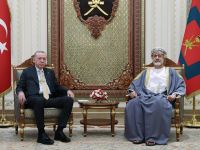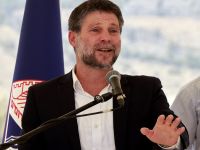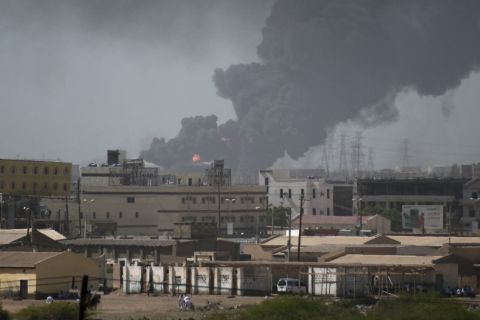The Dubai School of Government (DSG), a research and teaching institution focusing on public policy in the Arab world, announced it participated in the “Summit on Entrepreneurship” hosted by US President Barack Obama in Washington.
The event coincided with the launch of a report titled ”Social Entrepreneurship in the Middle East: Towards Sustainable Development for the Next Generation,” a collaborative effort between Dubai School of Government, the Wolfensohn Center for Development at the Brookings Institution, and Qatar-based Silatech.
Held April 26-27 in Washington, DC, the Presidential Summit on Entrepreneurship brought together more than 275 participants from over 50 countries around the world, including Morocco, Indonesia, Uganda, Kazakhstan, France and India and UAE.
The event witnessed the participation of world-renowned personalities such as US President Barack Obama, US Secretary of State Hillary Clinton, Goldman Sachs Global Head for Corporate Engagement Dina Powell, Grameen Bank founder Muhammad Yunus (Bangladesh), and World Bank Vice-President for Africa Obiageli Ezekwesili.
In addition to Dr. Tarik Yousef, Dean of the Dubai School of Government (DSG), a high-ranking delegation from the UAE attended the event. The delegation members included His Excellency Abdul Baset Al Janahi, CEO of the Mohammed Bin Rashid Establishment for SME Development (MBRE), Fatima Al Jaber, Chief Operating Officer of Al Jaber Group, Dr. Abdalla Alnajjar, President of the Arab Science and Technology Foundation, Dr. Dale Murphy, Senior Research Fellow and Entrepreneur Expert at DSG and Ms. Lubna Qassim, Lawyer at the Corporate Commercial Group and nonresident Fellow at the Dubai School of Government.
DSG Dean Tarik Yousef participated in the panel discussion on “Catalyzing Youth Entrepreneurship” that explored the role of education, training, mentorship, culture and other factors in encouraging young people to be innovative and entrepreneurially-minded.
Yousef said: “Through our participation in the Presidential Summit on Entrepreneurship, we offered a local perspective to the international participants. Leading minds from around the world raised opportunities and concerns, and presented numerous options to foster entrepreneurships and young talent. Entrepreneurship remains a key topic for policy makers around the world, as it is a key contributor which drives businesses and economies.”
The event saw leading political figures and academics, including Arne Duncan, US Secretary of Education, Soraya Salti, Senior Vice-President-MENA of Junior Achievement, and Goris Mustaqim, Founder of PT Resultan Nusantara, discussing ways to advance economic and social entrepreneurship, as well as build stakeholder networks and establish partnerships that advance entrepreneurship. The summit included a segment on business and social entrepreneurship in Muslim-majority countries and Muslim communities around the world.
In their joint foreword to the “Social Entrepreneurship in the Middle East: Towards Sustainable Development for the Next Generation” report, Dean Tarik Yousef of DSG, Rick Little, Chief Executive Officer of Silatech, and Samantha Constant, Associate Director of the Middle East Youth Initiative at the Wolfensohn Center for Development at Brookings, said: “By combining the best methods and practices from the business world with a determined focus on social impact, social entrepreneurs and social enterprises have the ability to transform the way we think about and address some of the world’s most intractable development challenges.”
The report offers recommendations for policy makers in the US and the Middle East, private sector leaders, international donors, social investor organizations and educational institutions. These include standardizing benchmarks for measuring social and environmental returns, supporting incubators and seed funds that invest in youth-led social enterprise start-ups.
The report describes an emerging model of social entrepreneurship that offers the potential to address the multi-sectoral challenges young people face in the Middle East. Despite the promise of an increasingly educated population of young people, the Middle East’s “youth bulge” generates pressure on education systems, labor markets, healthcare systems, natural resources and infrastructure. In this context, and with limited public and private resources, traditional development frameworks in the Middle East are proving inadequate and in need of transformation.
Established in 2005 in cooperation with the Harvard Kennedy School, the Dubai School of Government is committed to the creation of knowledge and the dissemination of global best practices in the Arab world. The institution conducts various programs that seek to enhance the region’s capacity for effective public policy.








